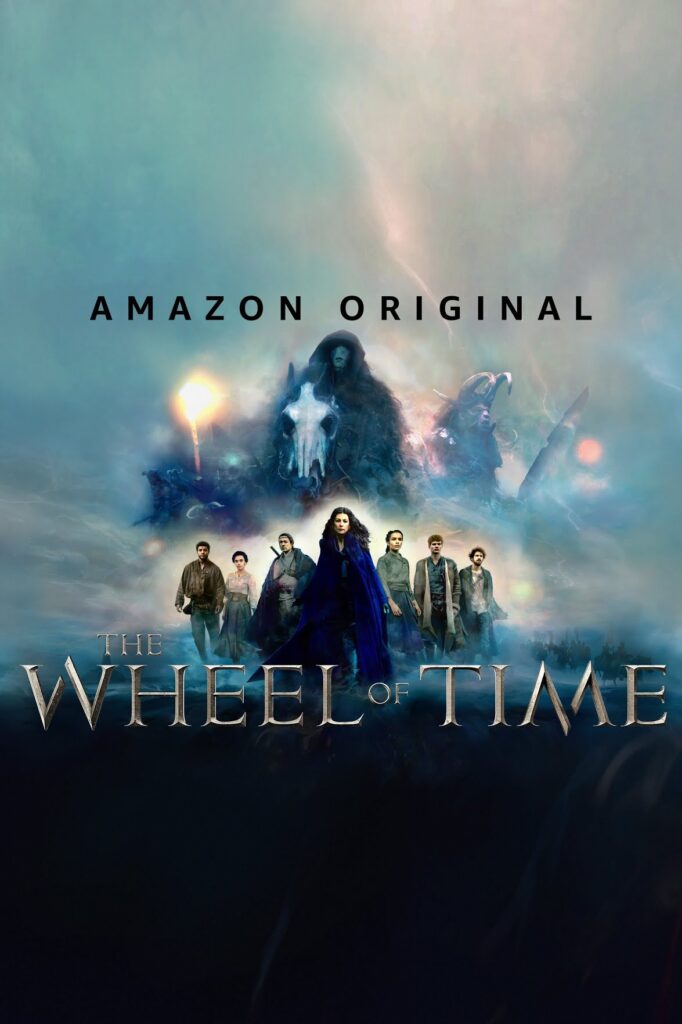The Wheel of Time
𝐂𝐫𝐞𝐚𝐭𝐨𝐫 – 𝐑𝐚𝐟𝐞 𝐉𝐮𝐝𝐤𝐢𝐧𝐬
𝐍𝐨. 𝐨𝐟 𝐄𝐩𝐢𝐬𝐨𝐝𝐞𝐬 – 𝟖 𝐑𝐮𝐧𝐭𝐢𝐦𝐞 – 𝟓𝟕 𝐦𝐢𝐧𝐬 𝐞𝐚𝐜𝐡
𝐏𝐥𝐚𝐭𝐟𝐨𝐫𝐦 – 𝐀𝐦𝐚𝐳𝐨𝐧 𝐏𝐫𝐢𝐦𝐞 𝐕𝐢𝐝𝐞𝐨
With The Wheel of Time, Shadow and Bone and The Witcher Season 2 coming out in the same year, fantasy as a genre is definitely having a moment. But while fantasy series are definitely trying to be the next Game of Thrones, people forget that more than the world building of the fantasy world, Thrones focused on the inter-personal conflicts and built off from that.
That’s not to say that The Wheel of Time doesn’t do that. The world of Wheel of Time, as established in the first two episodes, is a mixture of dense lore and immersive locations. While the first two episodes were extreme exposition heavy, from the third episode the show starts to get into a groove of its own. The basic conceit of the central protagonist, the chosen one or “The Dragon Reborn” not explicitly revealed within the ensemble of five “protagonists”, but kept more of a mystery until the penultimate chapter is a storytelling choice which is appreciated. The comparison with Lord of the Rings is an apt comparison from storytelling trope point of view, but unlike Lord of the Rings which was more about renunciation of power, this is more about the attaining of power. While the show’s world building tends to bog down the initial episodes, the show grows more and more stronger when its reliance on special effects decreases and its focus on intrigue and storytelling itself is given precedence.
Parts of the show did wok better than the others. The entire arc of the False dragon is an interesting wrinkle, the internal politics of the White Tower, and the Aes Sedai, the central magic-using group of women of which Rosamund Pike’s character of Morraine is a part of is also compelling. Pike herself is easily the most compelling part of the show, delivering exposition as well as character beats with masterful heft. Among the protagonists, Barney Barnes’ Mat Cauthon is an early highlight, which is a shame because his character is so sidelined throughout the season, maybe because of storytelling reasons or behind-the scenes troubles. The central protagonist Rand is very much the fantasy trope definition of protagonist, but he manages to make some hoices which make him far more compelling in the end. Conversely characters of Egwene or Perrin are acted well, but not given enough depth for me to care.
What actually forced me to become completely invested in the show is a reveal at the beginning of the final episode, a flashback sequence taking place 3000 years ago, revealing the world. Just that revelation itself reeled me back in far more effectively than Daniel Henney’s brooding Lan ever could, even though Lan is easily one of the stronger aspects of the show. The finale feels rushed, the stakes have become far more vaguer instead of being clearer, and even Fares Fares’ depiction of the antagonist can’t save the finale from feeling anticlimactic, even though the show’s depiction of magic in the final sequence is especially revealing, most importantly in its depiction of it’s cost.
The Wheel of Time is not a perfect show. It is ponderous, prone to falling in generic fantasy tropes. But its world has so much interesting wrinkles and a backstory so curious that it has me invested. I am cautiously optimistic for a second season. Let’s hope the writing gets better. And the show actually made me want ot dive into the books. so on that regard, the show wins.
Disclaimer: The above review solely illustrates the views of the writer.




